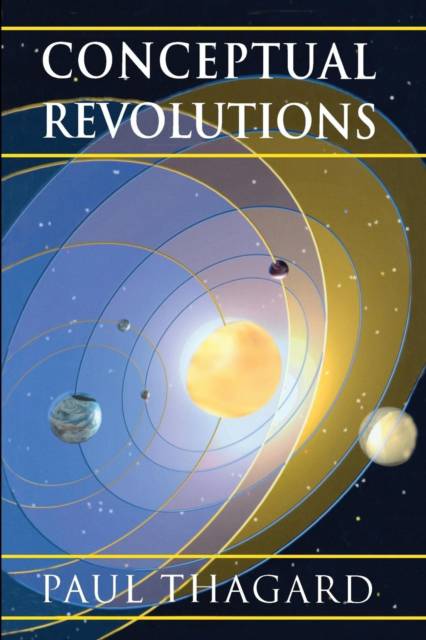
- Retrait gratuit dans votre magasin Club
- 7.000.000 titres dans notre catalogue
- Payer en toute sécurité
- Toujours un magasin près de chez vous
- Retrait gratuit dans votre magasin Club
- 7.000.0000 titres dans notre catalogue
- Payer en toute sécurité
- Toujours un magasin près de chez vous
Description
In this path-breaking work, Paul Thagard draws on the history and philosophy of science, cognitive psychology, and the field of artificial intelligence to develop a theory of conceptual change capable of accounting for all major scientific revolutions. The history of science contains dramatic episodes of revolutionary change in which whole systems of concepts have been replaced by new systems. Thagard provides a new and comprehensive perspective on the transformation of scientific conceptual systems.
Thagard examines the Copernican and the Darwinian revolutions and the emergence of Newton's mechanics, Lavoisier's oxygen theory, Einstein's theory of relativity, quantum theory, and the geological theory of plate tectonics. He discusses the psychological mechanisms by which new concepts and links between them are formed, and advances a computational theory of explanatory coherence to show how new theories can be judged to be superior to previous ones.Spécifications
Parties prenantes
- Auteur(s) :
- Editeur:
Contenu
- Nombre de pages :
- 310
- Langue:
- Anglais
Caractéristiques
- EAN:
- 9780691024905
- Date de parution :
- 03-01-93
- Format:
- Livre broché
- Format numérique:
- Trade paperback (VS)
- Dimensions :
- 153 mm x 229 mm
- Poids :
- 362 g

Les avis
Nous publions uniquement les avis qui respectent les conditions requises. Consultez nos conditions pour les avis.






